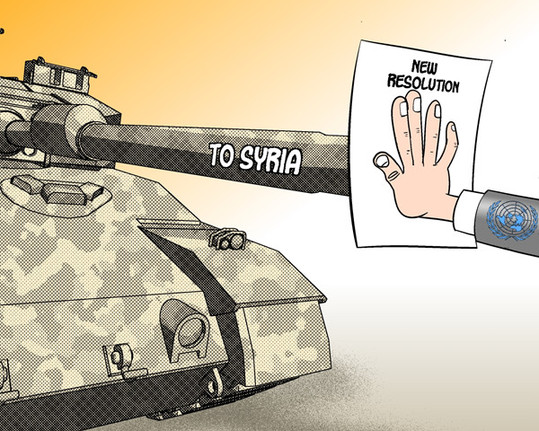A united resolution on Syrian chemical weapons
- By Sajjad Malik
 0 Comment(s)
0 Comment(s) Print
Print E-mail China.org.cn, September 30, 2013
E-mail China.org.cn, September 30, 2013
For the first time since Syria erupted into violence, the international community has spoken with one voice. The latest consensus was reached by a unanimous vote in the UN Security Council where all 15-members voted for a resolution to rid Damascus of its chemical weapons. It is a major achievement, given that a few weeks ago, international opinion was badly divided and there was a real danger of the U.S. launching air strikes on Syria without the blessings of the UN.
|
|
|
A chance for peace [By Jiao Haiyang/China.org.cn] |
The UN Security Council resolution asking Syria to surrender all chemical weapons and give unhindered access to inspectors has had far-reaching consequences in the history of world diplomacy. It has addressed matters dividing the major powers through concerted diplomatic efforts. Secretary John Kerry was right when he said that diplomacy can be powerful enough to defuse weapons of mass destruction, a reference to the elimination of the regime's chemical weapons by the Organization for the Prohibition of Chemical Weapons (OPCW) by the middle of next year.
There are two major aspects of the agreement between U.S. and Russia which have provided an opportunity for adoption of the resolution.
First, Moscow is back in international politics since yielding to Washington after the fall of the Soviet Union more than two decades ago. It has happened during the time of President Vladimir Putin, considered as a pro-West leader. He held his ground firmly in the face of the American war hysteria to punish President Bashar al-Assad for the alleged August 21 chemical weapons attack that killed hundreds of people. Putin said that there was no evidence to prove that Damascus had used the weapons, while Assad insisted that the rebels had launched the attack.






